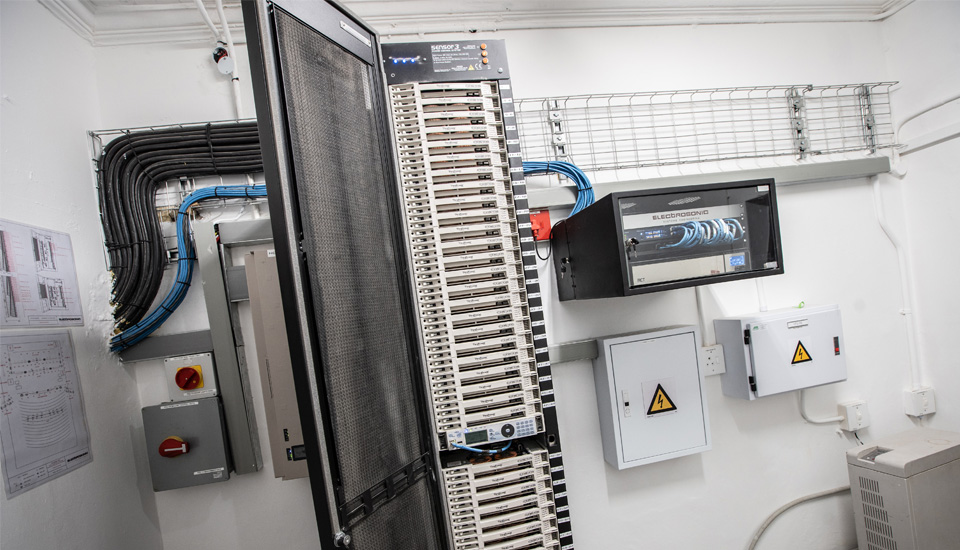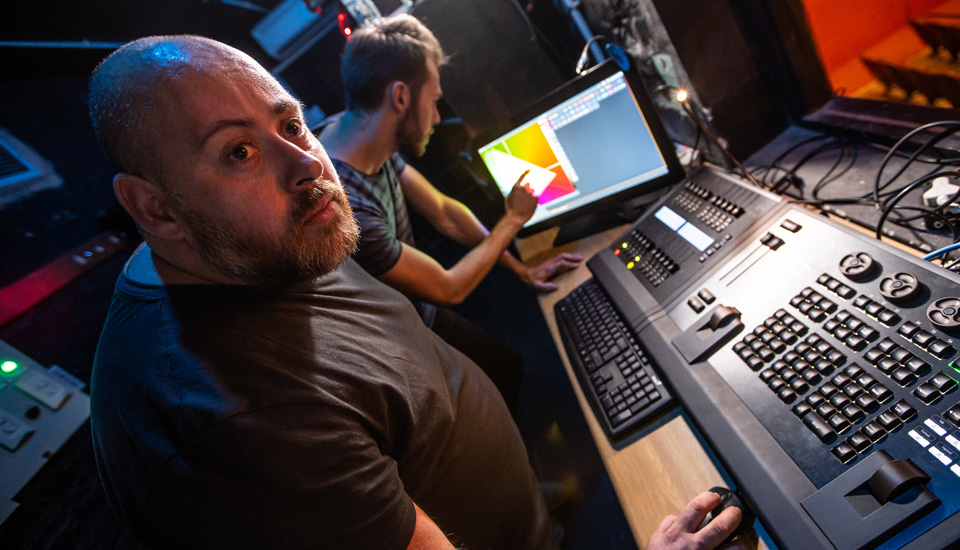Electrosonic delivers a big upgrade for the Little Theatre
Date Posted: 10/25/2018

Nestled under the shadows of Table Mountain, the University of Cape Town’s Little Theatre has served as the bedrock for some of the most celebrated theatre talents in South Africa and continues to produce theatre and film professionals that compare with some of the best in the world.
Over the past few years, UCT has rolled out a comprehensive refurbishment programme, with the objective of bringing the infrastructure at the Little Theatre in line with rapidly advancing global standards in theatre technology.
The Little Theatre serves as the centrepiece of UCT’s Centre for Theatre, Dance and Performance Studies (CTDPS), which includes several studios and performance spaces, a comprehensive technical department, a meticulously maintained wardrobe, a fully equipped workshop for set
design and construction, and a range of teaching and rehearsal venues.
Luke Ellenbogen, who has served as production manager at The Little Theatre for the past eight years, explains: “With the recent emergence of intelligent LED lighting technology and associated digitised control, the field of technical theatre has undergone a revolution over the past decade.
The University’s mandate is to produce graduates that are able to respond to whatever environment they find themselves in once they graduate. It is, therefore, imperative that the CTDPS’s learning spaces are equipped with the resources needed to offer
students the opportunity to experiment with the wide range of theatre technologies available.” To achieve the technical refurbishment of The Little Theatre, UCT turned to Electrosonic SA.
“We have worked with the team at Electrosonic for many years, and during that time we have established a strong working relationship,” Ellenbogen states. “Electrosonic has always been extremely understanding of our needs. They offer exceptional after-sales service on all of the products that they have installed
at our facilities and are willing to go the extra mile to support us. When something does go wrong, we can rely on the team at Electrosonic SA to respond immediately, and they have never let us down,” he concludes.

LIGHTING THE LITTLE
The theatre management team at UCT provided Electrosonic with a brief that included the house lights, stage lights, dimming and control, and lighting console at front of house. The objective of the project was to bring the theatre’s infrastructure in line with international performance
and safety standards. Electrosonic responded with a comprehensive installation plan, based on Electronic Theatre Control (ETC) solutions.
“Deploying an ETC-based solution made the most sense, as ETC is recognised globally as a leader in the design and manufacturing of lighting technology for theatre applications and offers a full range of products that are scalable to suit the specific
requirements of an installation,” comments live events manager and theatre installation expert Robbi Nassi from Electrosonic.
ETC’s
Unison Paradigm system has been used to oversee some of the largest, most complex and demanding lighting installations in the world and operates using ETC’s powerful Paradigm 4.0 software. Following installation, the architectural lighting control system, used in conjunction with
Sensor 3 Power Control, integrates all aspects of the theatre’s lighting - from house lights to working lights, and is operated using multiple Unison Button Stations that are strategically positioned throughout the venue.
“All equipment installed runs through a network, which is managed using the Luminex 26i Network Switch so that one can configure, programme and control any lighting aspect of the venue from multiple points around the space, linked to one central point,” Nassi explains.
THE LITTLE STAGE COMES
TO LIFE
The most critical aspect of the lighting installation at the Little Theatre remains the stage lighting. Central to the stage lighting rig at the Little Theatre is the
Ion® XE console, billed as the compact workhorse of ETC’s
Eos family. According to Jeremy Roberts, ETC’s regional manager for sub-Saharan Africa, the ETC Eos family offers straightforward programming syntax, together with a range of features that allows lighting designers and operators to work at a granular control level.
The award-winning Eos colour tools provide unprecedented control over LED colour mixing, while customisable Magic Sheets and Direct Selects speed up technical processes and allow for customised interfaces to be built to optimise workflow.
“The Eos family has been designed from the ground up in close collaboration with lighting designers and programmers that specialise in lighting theatre, ballet, opera and TV. As a result, every aspect of the console – from where the keyboard controls are positioned to the syntax used - ensures the needs of theatre
lighting programmers are met,” Roberts explains.
The Eos family software ensures that all features are accessible, regardless of the model that you purchase. ETC’s research and development department is constantly developing features in response to feedback from the Eos user community. Of particular importance for applications in higher education, Eos software is
available free of charge. Students can hone their skills working on a laptop, and shows that have been programmed using the software can be saved and imported onto the Eos Ion® XE console at front of house for rehearsals and performances.
In addition to the state-of-the-art lighting control installed at the Little Theatre, the University has recently taken delivery of the
ETC ColorSource Engine with CYC attachments - a dedicated cyclorama fixture specifically designed to create smooth washes of light on a cyclorama or wall.
“Over the past few months, alumni who have seen the upgraded facilities have made their displeasure felt, as many of them wish that they could re-experience their training, with the new equipment and technology in place,” Ellenbogen declares. “I have heard the words
‘it's not fair, why didn’t we have all of
this when we were studying’ repeatedly over the past few months, which implies that we have done something right,” Ellenbogen concludes.